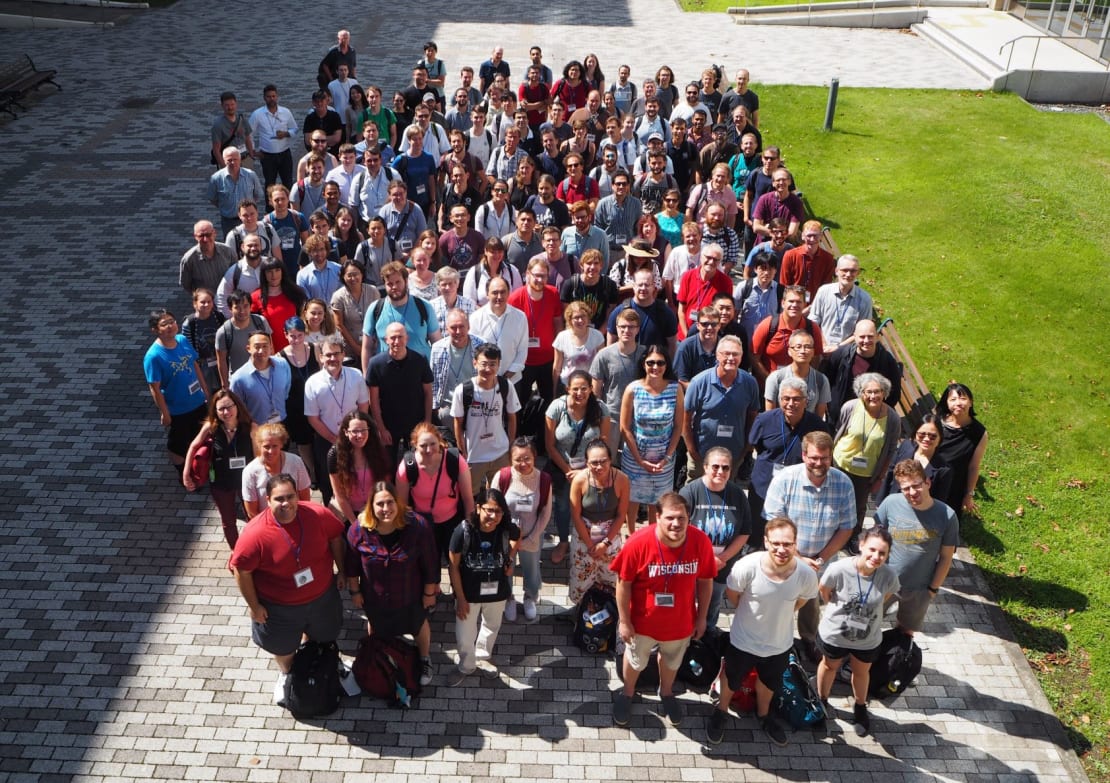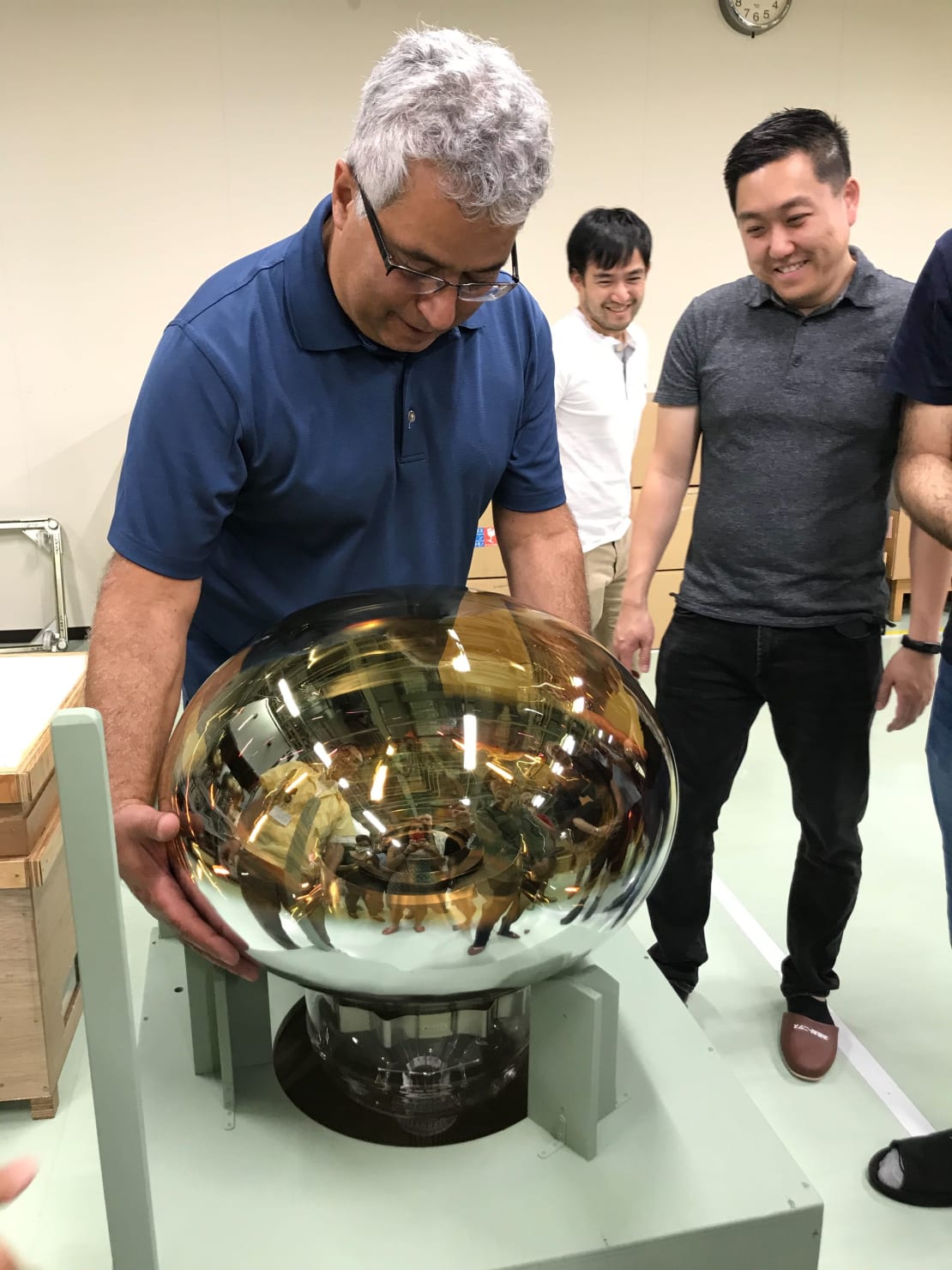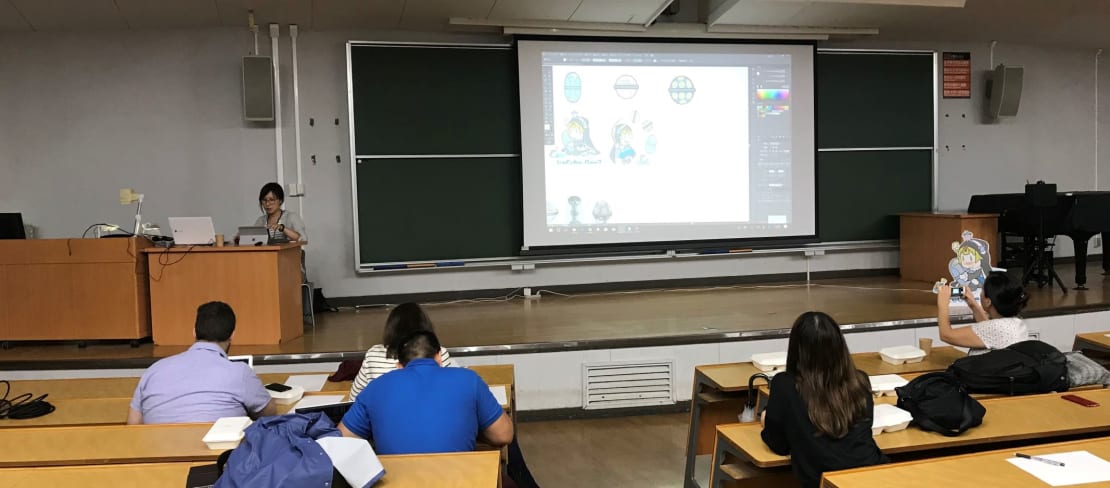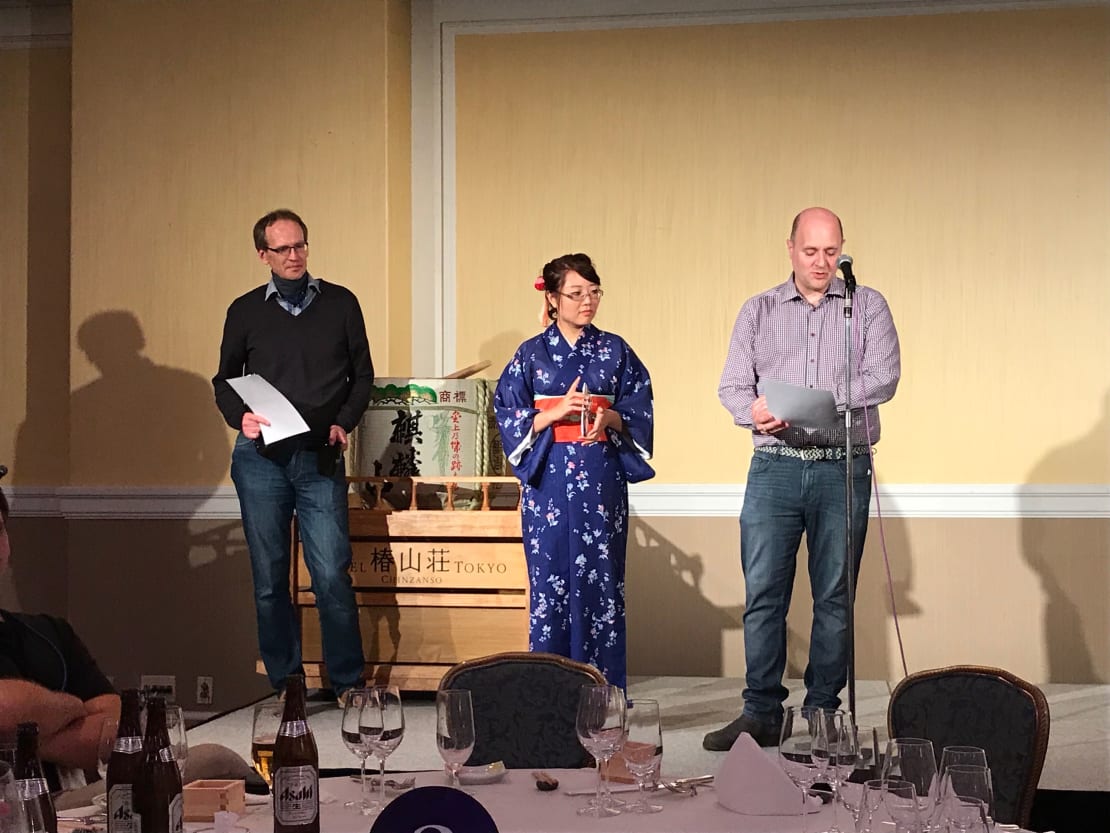
The fall IceCube Collaboration meeting wrapped up last Friday in Chiba, Japan. About two thirds of the collaboration, representing 38 institutions in 11 countries, assembled at Chiba University, the home institution of the International Center for Hadron Astrophysics (ICEHAP) group, from September 16–20.
Chiba University professor Shigeru Yoshida, host of the meeting, said, “It was wonderful to see many collaborators here in Japan—finally, after my 17 years with IceCube.” This was the first IceCube Collaboration meeting to take place in Asia and was a success by all accounts.
Collaboration meetings, held biannually in the home city of an IceCube institution, provide opportunities for the geographically disperse collaboration to meet face-to-face and discuss the latest in neutrino sources, diffuse backgrounds, data analysis, and more. A big focus of this meeting was the IceCube Upgrade, which was announced in July.

On the Friday before the meeting officially began, 50 collaborators got a tour of a Hamamatsu Photonics factory. This factory manufactures photomultiplier tubes (PMTs) for IceCube’s optical modules, like the currently used DOMs and the future D-Eggs. Hamamatsu also makes PMTs for Super-Kamiokande, another neutrino detector located in Japan, and its successor, Hyper-Kamiokande.
Pre-meetings took place the weekend before, including a diffuse neutrino workshop in Tokyo.
The Chiba prefecture, where Chiba University is located, was hit by a typhoon just before the start of the meeting. In support of the prefecture, the welcome party featured food made from Chiba products. In addition, IceCube members were encouraged to donate to the “Save Chiba” fund throughout the week.
On Wednesday, a science communication workshop featured talks by Dr. Yuki Akimoto, creator of Higgs-tan that teaches particle physics through manga, and IceCube collaborator Dr. Lu Lu of Chiba University, who leads an IceCube project to create an augmented reality app using real IceCube data.

The fourth edition of the IceCube Impact Awards were announced at the collaboration banquet on Thursday, September 19. Launched in 2018 to recognize efforts dedicated toward improving IceCube’s detector performance, the award recipients are chosen based on nominations from IceCube collaborators. This meeting’s awardees are Lu Lu of Chiba University for “leading contributions in promoting IceCube and its science to the general public, in particular through augmented reality experiences,” and Thomas Kintscher of DESY “for key contributions to the IceCube realtime-system software which has been crucial to many high-profile physics results.”

The collaboration also furthered its efforts to promote a welcome environment for all members of IceCube by providing pronoun stickers for nametags and hosting a dinner for LGBTQ+ collaborators and allies.
Lastly, on Sunday, September 22—the two-year anniversary of the detection of IceCube-170922A—the collaboration received two “gold”-level neutrino alerts. These potentially interesting events, in addition to IC190730A (the “ICRC event” detected July 30, 2019) that is coincident with blazar PKS1502+106, are currently being analyzed.
The next meeting will take place in Brussels, Belgium, next May.